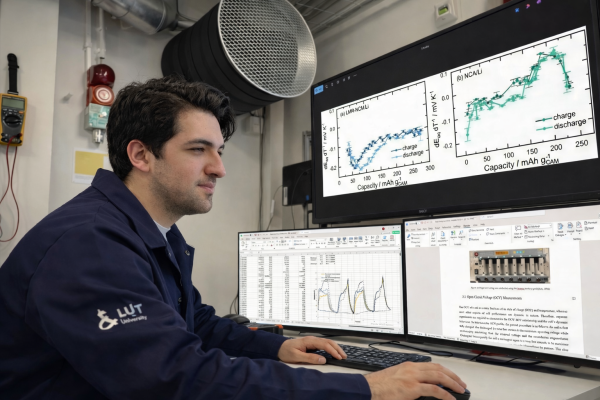WP2 investigates the possibilities of implementing relevant low-carbon or carbon-neutral multifuel solutions in high-speed off-road engines, with the goal of efficiently reducing CO2 emissions from both tank-to-wheels and well-to-wheel perspectives. The research focuses on developing and exploiting novel combustion concepts and engine technologies that enable the utilization of renewable, low-carbon liquid fuels, methanol, and carbon-free hydrogen. Furthermore, various fuel blends consisting of low-carbon alternatives combined with traditional diesel are studied to provide a fast track to efficiently cut CO2 emissions.
– WP2 is particularly exciting because it enables us to explore the true potential of combining various novel combustion concepts with interesting, alternative low-carbon fuels. Exploring these elements will play a key role in enabling the decarbonization of various off-road applications, which will still depend on internal combustion engines in the future, says WP2 leader Rasmus Pettinen.
Engine performance is highly reliant on fuel characteristics. Simultaneously, engine performance and fuel type directly affect engine emissions. These factors are setting requirements for engine exhaust aftertreatment systems. Therefore, WP2 connects actively with both WP3 “Regulations and Feasibility of Multi-fuel Combos”, which focuses on the development of relevant fuels and WP4 “Aftertreatment Technologies for Multi-fuel Engines”, which develops engine exhaust aftertreatment technologies for multifuel solutions. WP2 is actively collaborating with our national engine manufacturers. This collaboration is important for aligning our joint goals to maximise the performance of future engine technologies utilizing sustainable fuels.
According to Pettinen, the work in the WP has started very well, with experimental studies already ongoing. In parallel, simulation and modelling activities have been initiated. Additionally, a fruitful collaboration between the research organizations is foreseen during the project. WP3 team is therefore very excited to jointly embark on the journey of advancing internal combustion engine technologies step by step towards a more sustainable future.
Pettinen is responsible for the VTT’s project within Flex-CPT and simultaneously leading WP2 on a consortium level. His role in Flex-CPT is therefore to 1) manage and allocate appropriate resourcing within VTT, enabling seamless collaboration between VTT and the Flex-CPT consortium, and 2) to ensure sufficient communication within WP2 and across other relevant WPs, and to guide the research activities to meet the expected deliverables.
– Since childhood, I have always been very interested in physics and applied mechanics. My long-term passion for internal combustion engines initially brought me to Aalto University, which has been the foundation for my academic career, says Pettinen. At Aalto, he studied mechanical engineering primarily focusing on internal combustion engines and drivetrains. During the later stages of his studies, he also worked in the Aalto University’s internal combustion engine faculty.
In 2016, Pettinen joined VTT Technical Research Centre of Finland, which provided him with an exceptional platform to further build his knowledge around combining alternative fuels with various novel powertrain configurations. Currently, he works at VTT as a Senior Scientist and Project Manager, where he leads and participates in various research projects aimed at reducing emissions and improving the efficiency of future powertrains. After joining VTT, he also started pursuing a PhD at Aalto, focusing on advanced, alternative fuels.



